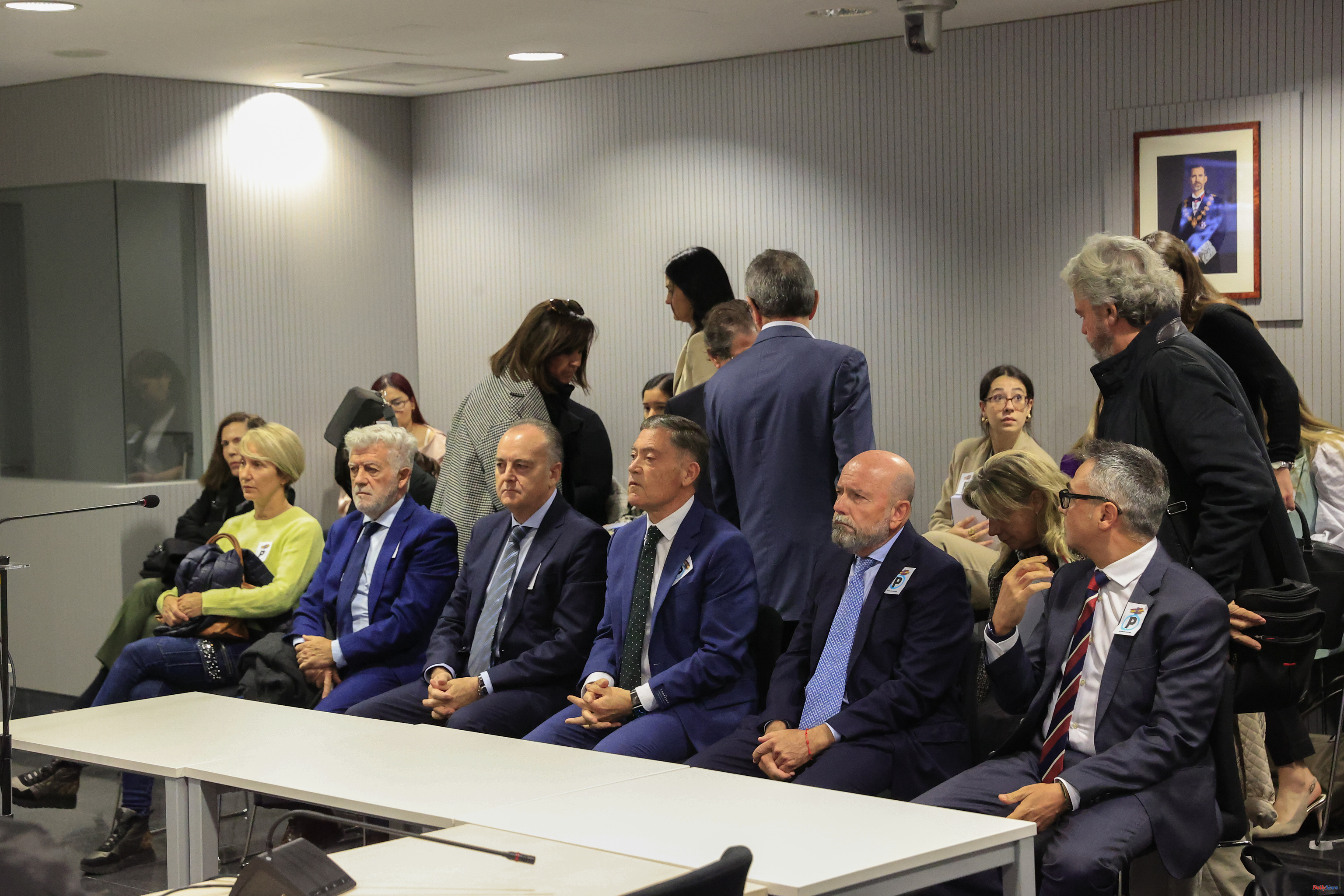The National Court has handed down a sentence in the Punic case that acquits them of the crimes that entailed imprisonment and limits the sentences to disqualification. One of the convicted is the former president of the Provincial Council of León with the PP Marcos Martínez Barazón, who on Sunday again obtained the Mayor's Office with the acronym of the Independent Association of Cadres.
The First Criminal Section imposes eight and a half years of special disqualification for employment or public office for a continued crime of prevarication. The sentence is not final, so nothing prevents Barazón from taking office as Mayor, where he has been since 1991. If the sentence becomes final, he will have to leave office.
In this procedure, the online personal reputation contracts agreed by the León Provincial Council for what was its president Isabel Carrasco y Martínez Barazón, who replaced Carrasco when she was murdered in 2014 and who remained in the position for a few months, until that the Punic case broke out. It has also been examined as another series of contracts awarded to the companies of Alejandro de Pedro, considered to be the achiever of the plot, Alejandro De Pedro. For De Pedro, the sentence is four years and three months of disqualification.
The court acquits of the crimes for which the Anti-Corruption Prosecutor's Office and the popular prosecution exercised by Adade requested prison terms. For Martínez Barazón, the prosecutors in the case were demanding eight years in prison for fraud against the Administration and embezzlement with false documents. For De Pedro, six and a half years in prison for the same crimes.
The same penalty as Barazón is imposed on those who were general coordinator and controller of the Provincial Council, Pedro Vicente Sánchez and Manuel Jesús López Sánchez, respectively. In all cases, the court lowers the sentences initially provided for, estimating that there have been unjustified delays in the investigation of the case, which was opened in 2014. The sentence acquits José Antonio Alonso Conesa, De Pedro's partner and former socialist mayor of Cartagena . The worker of their companies Guadalupe Caballero is also exonerated.
The Court considers it proven that De Pedro, in collusion with Barazón, carried out irregularities in the administrative procedure that was followed in the Provincial Council of León for the award of institutional advertising.
"With this procedure for approving invoices, all of them monthly, of similar amounts, and in any case, less than 6,000 euros, processed by the urgent procedure, without this being necessary, also incorrectly applying the called the unjust enrichment doctrine, and which clearly and patently violated the regulations established in the Public Sector Contracts Law, the defendants Alejandro de Pedro, Marcos Martínez Barazón, Pedro Vicente Sánchez García and Manuel Jesús López Sánchez guaranteed immediate payment of the amount thereof", states the resolution.
And all this, continues the court, without having to resort to an "adequate and pertinent" contracting system, thus also preventing other media from opting for the institutional advertising of the Provincial Council. They also eluded "a more rigorous and exhaustive control", first by the Contracting Service, and second, by the General Intervention of that body.
A large part of the investigation of the Púnica case, not only of the León branch, has focused on the qualification of the online reputation and positioning services offered by De Pedro. The court concludes that it cannot be considered that they were carried out in favor and for the personal benefit of Carrasco and Barazón. The contrary interpretation of the Prosecutor's Office had led in other branches of Púnica to the imputation of popular politicians such as Lucía Figar.
For the Court, it has also not been proven that the invoices drawn by the De Pedro companies did not correspond to work actually carried out, nor that institutional advertising services had not been provided, nor that under the concept that appeared in them (insertion of advertising banners Diputación de León) covertly paid personal reputation work or political advisory work for the presidents of the Diputación.
Nor has it been proven, according to the sentence, that such works had been commissioned as consideration for the defendants De Pedro and Alonso Conesa -especially the latter- influencing in some way that said presidents could access other public positions, either within the PP or within the province of León or the Autonomous Community.
The "inseparable" nature between the name of the person and the position they represent stands out when analyzing the public or private nature of these reputational works investigated. "It has not been verified in the records that this empowerment in social networks and these positioning works in social networks, especially on the internet, as well as the publication of news referring to the persons of the Presidents of the Provincial Council as such, in relation to their position , which provided the services of the EICO and MADIVA entities through their digital newspapers, had a purely personal or particular dimension and aimed at extolling their work carried out in a strictly personal sphere".
Proof of this, the magistrates add, is that "in all the documentation that has been intervened and that works in the case, regarding this specific aspect, there is no news of a particular or personal nature of said persons, but rather all the news make in relation to activities, either of the Provincial Council itself as an institutional entity, or to activities of such presidents in their capacity as the position they held, that of the Presidency of the Provincial Council".
According to the criteria of The Trust Project












